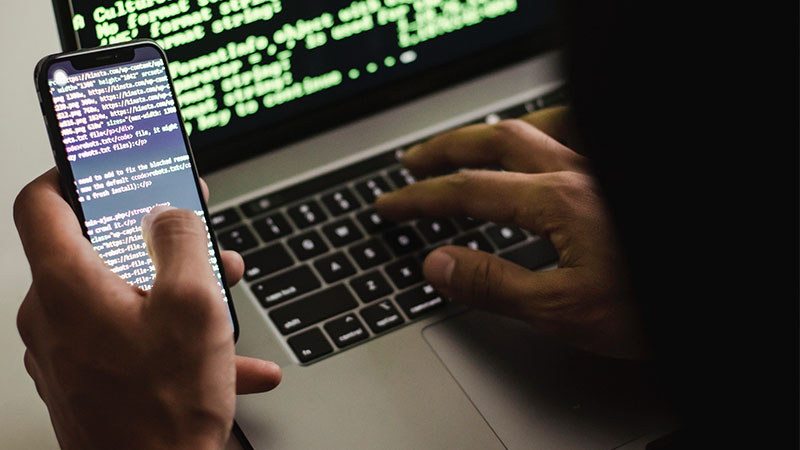Malware stands for malicious software, which is designed to harm or exploit a computer system without the user’s knowledge or consent. There are many types of malware, including viruses, worms, trojans, ransomware, and spyware.
Table of Contents
To stay away from malware, it’s important to be cautious while browsing the internet or downloading software from unknown sources. Always make sure your operating system and antivirus software are up-to-date and running. Use strong and unique passwords for all your online accounts and enable two-factor authentication whenever possible. Avoid opening suspicious email attachments or clicking on links from unknown sources.
How to protect your computer from malware?
Hey there! Protecting your computer from malware is important to keep your personal data and information safe. Here are some tips to keep your computer safe:
- Antivirus software: Antivirus software is designed to detect, prevent and remove malware from your computer. Make sure to keep it updated.
- Update your drivers: It is important that your computer drivers are up-to-date so that you are always having the latest updated security patch.
- Keep your software up-to-date: Keep all your software up-to-date to ensure they have the latest security patches.
- Use a firewall: A firewall can help block unauthorized access to your computer from the internet.
- Be careful with email attachments: Don’t open email attachments from unknown sources as they may contain malware.
- Use strong passwords: Use strong and unique passwords for all your accounts to prevent unauthorized access.
- Be careful with downloads: Download files only from trusted sources to avoid downloading malware-infected files.
- Back up your data: Regularly backup your important data to an external hard drive or cloud storage to prevent data loss in case of malware attack.
- Use a Premium VPN: When using internet or downloading from unsecure sites it is recommended that your antivirus is protecting your Windows, and you are using a premium VPN to prevent from data stolen and direct malware attacks.
Remember, staying safe online is important and following these tips can help keep your computer safe from malware.
How to protect your mobile from malware?
There are several steps you can take to protect your mobile device from malware:
- Install a reputable antivirus app: Antivirus software can help prevent malware from infecting your device by scanning your apps and files for malicious code. There are many free and paid options available in the app stores.
- Keep your operating system and apps up to date: Regularly updating your device’s software and apps can help patch vulnerabilities that could be exploited by malware.
- Only download apps from trusted sources: Stick to downloading apps from the Google Play Store or Apple App Store, as these platforms have measures in place to protect users from malware.
- Be cautious of suspicious messages and emails: Malware can often be spread through phishing emails or text messages. Avoid clicking on links or downloading attachments from unknown senders.
- Use strong passwords and biometric authentication: Use complex passwords and enable biometric authentication (such as fingerprint or facial recognition) to prevent unauthorized access to your device.
By following these steps, you can significantly reduce the risk of malware infecting your mobile device.
How to Prevent Malware attacks?


To protect your computer from malware attacks, there are several steps you can take:
- Firstly, always ensure that you have antivirus software installed and kept up-to-date. This will scan your computer for any malicious programs and prevent them from running.
- Secondly, be careful when clicking on links or downloading files from the internet. Only download from trusted sources and avoid clicking on suspicious links or pop-ups.
- Thirdly, keep your operating system and all software up-to-date with the latest security patches. This will ensure that any vulnerabilities are patched and cannot be exploited by malware.
- Fourthly, be cautious when opening email attachments or clicking on links in emails. If you are not sure about the source, do not click on the link or open the attachment.
- Finally, always use strong passwords and enable two-factor authentication wherever possible. This will make it harder for attackers to gain access to your computer or accounts. By following these steps, you can significantly reduce your risk of being affected by malware.
Final Thoughts
Education is key to staying safe from malware. Stay informed about the latest threats and techniques used by cybercriminals, and be cautious when using public Wi-Fi or sharing sensitive information online. By staying informed and taking proactive measures, you can help protect yourself from the damaging effects of malware attacks.
FAQ’s
Here are some FAQs on protecting your computer from malware:
What is malware, and how can it harm my computer?
Malware refers to malicious software that is designed to damage, disrupt, or gain unauthorized access to a computer system. It can take many forms, such as viruses, worms, Trojan horses, spyware, adware, and ransomware. Malware can harm your computer in several ways, such as slowing down its performance, stealing your personal information, corrupting or deleting your files, displaying unwanted pop-ups, and even taking control of your computer.
How can I protect my Windows from malware attacks?
There are several measures you can take to protect your Windows 7, 8.1, 10, 11 from malware attacks. Firstly, ensure that your operating system, web browser, and other software are up-to-date with the latest security patches and updates. This can help to plug any vulnerabilities that can be exploited by hackers. Secondly, use a reputable antivirus software and keep it updated to detect and remove any malware that may be present on your computer. Thirdly, exercise caution when downloading or installing software from the internet, and only download from trusted sources. Additionally, be wary of suspicious emails and messages, and avoid clicking on links or opening attachments from unknown or suspicious senders.
What should I do if my computer is infected with malware?
If you suspect that your computer is infected with malware, take immediate action to mitigate the damage. Firstly, disconnect your computer from the internet to prevent the malware from spreading. Secondly, run a full virus scan using your antivirus software to detect and remove any malware that may be present on your computer. If your antivirus software is unable to remove the malware, consider using a dedicated malware removal tool. Finally, change your passwords for any online accounts that may have been compromised, and monitor your bank accounts and credit card statements for any suspicious activity.
How can I prevent malware attacks on my mobile devices?
Malware attacks can also target mobile devices such as smartphones and tablets. To prevent malware attacks on your mobile devices, ensure that you only download apps from trusted sources such as the official app store for your device. Additionally, keep your operating system and apps up-to-date with the latest security patches and updates. Avoid clicking on links or opening attachments from unknown or suspicious senders, and use a reputable mobile antivirus software to detect and remove any malware that may be present on your device.
What are the most common types of malware?
The most common types of malware include viruses, trojans, worms, adware, spyware, and ransomware. Each type of malware has a different way of infecting and damaging your computer. Viruses, for example, attach themselves to legitimate files and spread when the infected files are opened or shared. Ransomware, on the other hand, locks down your computer and demands payment in exchange for unlocking it.
Can I get malware from visiting a website?
Yes, you can get malware from visiting a website. Malware can be hidden on legitimate-looking websites, or it can be disguised as an ad or a download link. Once you click on the link or download the file, the malware will infect your computer. This is why it’s important to have an anti-malware program installed on your computer that can detect and block malicious websites and downloads.
How can I prevent malware infections?
Preventing malware infections involves a combination of good online habits and having the right security software in place. Some tips for preventing malware infections include:
1) Keeping your operating system and software up to date with the latest security patches
2) Using strong and unique passwords for all your accounts
3) Avoiding suspicious emails and not clicking on links or downloading attachments from unknown senders
4) Using a pop-up blocker to prevent unwanted ads and pop-ups
5) Installing and regularly updating anti-virus and anti-malware software
6) Being cautious when downloading and installing software, especially from third-party websites
What should I do if I suspect my computer has been infected with malware?
If you suspect your computer has been infected with malware, you should take immediate action to remove it. Some signs of a malware infection include slow computer performance, pop-up ads, programs running on their own, and changes to your homepage or search engine. To remove malware, you should run a full system scan with your anti-virus or anti-malware software, and follow any instructions for removing the detected threats. You may also need to reset your browser settings or use a system restore point to undo any changes made by the malware. If you’re unable to remove the malware on your own, you may need to seek professional help.
If you have a question ask me in the comments.






